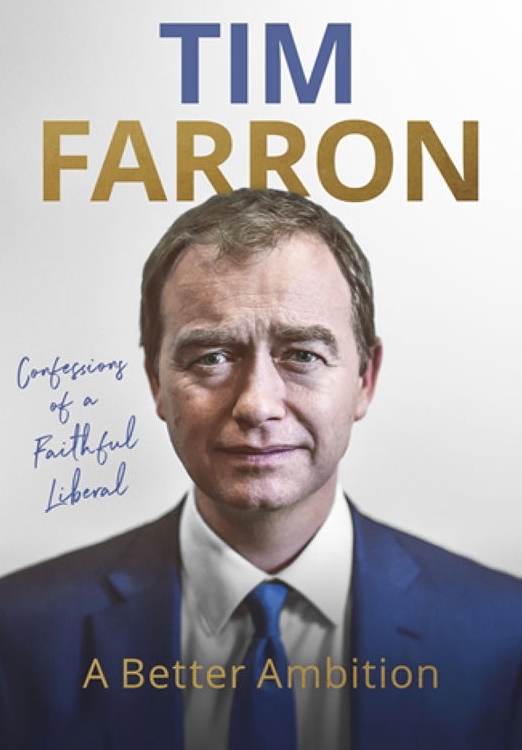A Better Ambition by Tim Farron
Farron is honest about his personal and political shortcomings, writes in a readable, quirky style, and raises some important issues
 A Better Ambition – Confessions of a Faithful Liberal
A Better Ambition – Confessions of a Faithful Liberal
By Tim Farron
SPCK
ISBN: 9780281083589
Reviewed by John Matthews
Tim Farron resigned as Leader of the Liberal Democrats in June 2017, after just two years in the post, having reached the conclusion, as expressed in his resignation letter, that “to be a political leader - especially of a progressive, liberal party in 2017 - and to live as a committed Christian, to hold faithfully to the Bible's teaching, has felt impossible for me”. He says that he was not prepared to either compromise his faith or have his party damaged by the incessant focus on his beliefs. The letter concludes with this clear expression of his commitment to Christ: “Imagine how proud I am to lead this party. And then imagine what would lead me to voluntarily relinquish that honour. In the words of Isaac Watts it would have to be something ‘so amazing, so divine, (it) demands my heart, my life, my all” (266).
The tension between his faith and his politics was highlighted by his being asked whether he felt that gay sex was a sin, something which gets mentioned more than once in the book. His initial response was followed, a week later, with an unequivocal ‘no’. An answer he now deeply regrets. His story raises questions like how far it is legitimate for journalists to probe a politician’s faith and whether it is possible to be both a conservative evangelical Christian and a major political figure in this country at this time.
Farron, who is a member of an FIEC church in Kendal, is very clear about his faith, and it is interesting to read how he came to it and seeks to live it out, but he is equally clear that Christians should not impose their values on other people. This is why, for example, whilst he is against abortion, he does not believe that it should be illegal.
To Farron, liberals believe in the rights and freedoms of individuals, not least, those with whom they disagree, and he has strong words for those who claim to be liberal but treat others in ways which are illiberal. He is also critical of Christians who ‘complain about being dissed on Twitter’, believing that we should accept offence with grace. Poverty is a far greater affront to him than people being nasty to Christians (102f).
The book includes some interesting insights into the practice of politics, not least regarding the Liberal Democrat coalition with the Conservatives.
Baptists will appreciate the mention of William Carey in relation to ending the practice of sati (widow burning) in India.
Farron is honest about his personal and political shortcomings and writes in a readable and, occasionally, quirky style, but the fact that the story jumps backwards and forwards means that the narrative is less fluent than it might have been. Having said that, the book raises some important issues and is well worth reading.
John Matthews is a retired Baptist minister living in Rushden, Northants
Baptist Times, 26/10/2019